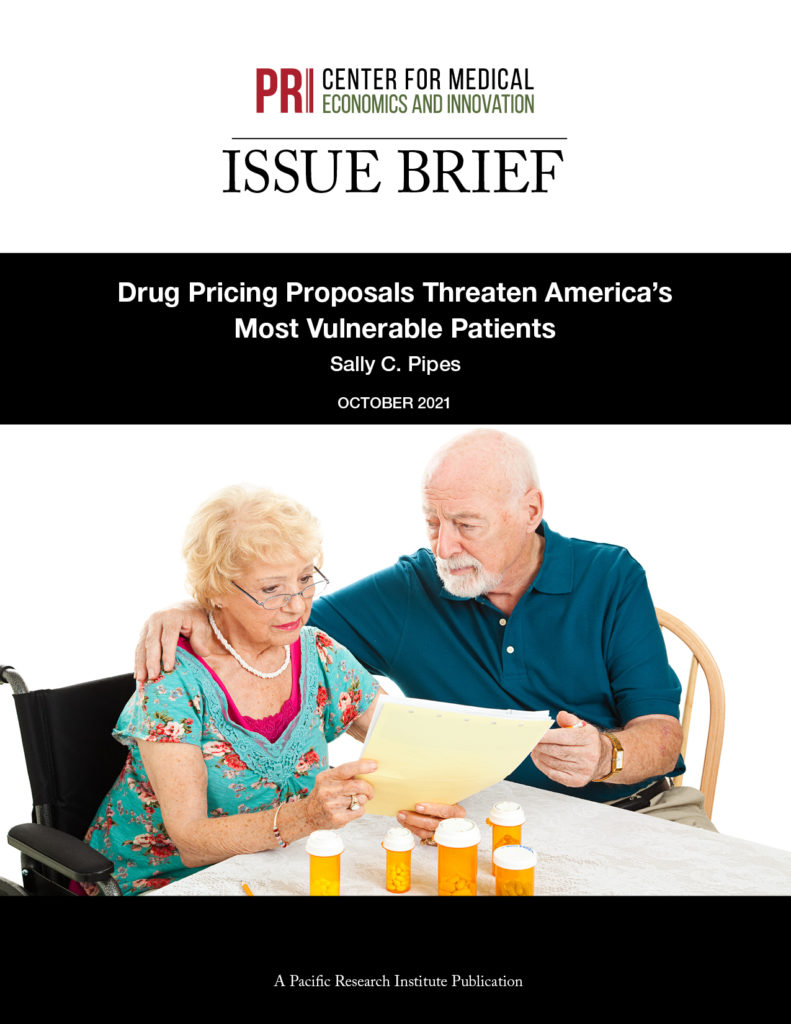NEW BRIEF: Focus Groups Overwhelmingly Disapprove of Government “Negotiated” Drug Pricing
 Today, the Pacific Research Institute published an issue brief revealing overwhelming public disapproval for Medicare reforms that Congress is considering as part of its $3.5 trillion spending bill.
Today, the Pacific Research Institute published an issue brief revealing overwhelming public disapproval for Medicare reforms that Congress is considering as part of its $3.5 trillion spending bill.
Click here to read the full issue brief, “Drug Pricing Proposals Threaten America’s Most Vulnerable Patients.”
“It’s a relief that Americans oppose Congress’s drug pricing proposals once voters learn the true consequences of these misguided reforms,” said Sally C. Pipes, the brief’s co-author and PRI president, CEO, and Thomas W. Smith Fellow in Health Care Policy.
To cut Medicare costs, lawmakers want U.S. officials to negotiate prices with drug makers. In reality, these “negotiations” merely amount to the imposition of a system of price controls. Proposals include tying drug prices to those paid by the Veterans Health Administration or by healthcare systems in Canada and Europe. In both cases, bureaucrats assign a value to a person’s life based on their age and health and then undertake a cost-benefit analysis to determine whether to cover a medication and how much to pay for it — and who is and isn’t eligible for certain drugs.
“America’s most vulnerable patients could lose out on hundreds of new life-saving medicines,” Pipes said.
Although leaders have assured their members these policies are popular with voters, new survey and focus group data from OnMessage Inc. find that when Americans learn how the government would determine prices, support declines dramatically.
According to a survey of likely general election voters:
- When asked whether Medicare should base its drug prices on decisions made by government officials in Canada and Europe, nearly 60% opposed the idea.
- Nearly 78% of voters oppose government setting drug prices based on calculations that determine the value of a patient’s life (so-called QALY-based systems).
- When informed that under such plans as the House and Senate are considering, “people who are older or who have disabilities are less likely to get the newest medicines,” more than 72% of voters said they were less likely to support the reform.
- When asked if they would be more or less likely to support a candidate for Congress who voted in favor of one of these drug pricing reforms, nearly 66% said “less likely,” with over half saying “much less likely.”
Focus groups of female swing voters expressed strong disapproval for these policies. One described policies that rely on QALY as “Government playing God.”
Another said, “it’s an unnecessary evil, having anyone make those decisions outside of the doctor.”
“These results should fundamentally transform the way Washington approaches drug pricing reform,” Pipes said. “Our politicians need to prioritize patients’ best interests.”
For a full summary of the poll’s results, click here. For a full summary of the focus group findings, click here. To view a summary of the poll and the focus group’s findings, click here.

